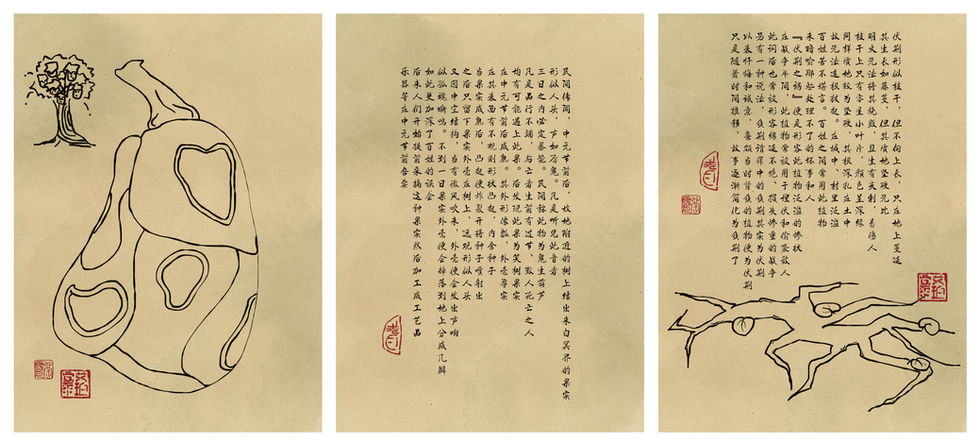
Moist Media III: Life Spectrum
Department:
Instructor:
Term:
Units:
Length:
Lab:
Prerequisites:
Office Hours:
Students:
Roy Ascott Studio, School of New Media Art, Shanghai Institute of Visual Arts
Frank Cong
Spring 2021 - 2023
D30120066.01
4 hours / week, 9 weeks / semester
12F Moist Media Lab, DeTao Masters Academy
Moist Media I & II; Cybernetics I, II, III, IV & V
Tuesday, 13:00 - 17:00 (CST), by appointment
3rd/4th Year BFA
Course Overview
Moist Media III: Life Spectrum is the final course of Moist Media series designed by Frank Cong. Integrating the characteristics of life and ethical implications of biotechnology and bioart explored in the previous courses, Moist Media III: Life Spectrum examines how the notion of life is being challenged by digital technology, biotechnology, the Internet, and media culture.
Through lectures and readings, students are introduced to unconventional forms of life: 1) the simulative (e.g., Conway’s Game of Life), 2) the semi-living (e.g., the TC&A project), and 3) the synthetic (e.g., Grow Your Own … exhibition). The course also places an emphasis on practice. Due to the COVID restriction, students registered in the 2021 – 2022 spring unit will be guided through computational experiments in swarm behavior, fractal visuals, cellular automata, evolving computing, etc. The course encourages students to research a potential life form on the spectrum of life through media arts and design practices, echoing James Gimzewski’s (2009) appeal for media arts as a new approach to investigate across culture and technology: “At IMeRA, I would engage on new approaches to the dealing with change in Culture and technology from the driving level of nanoscience and media arts. Both of these are concerned with new forms of communication in hardware and education cognizant of local culture, virtual communities and neural networks.” The final submission includes a collaborative project from each student group and an individual research journal from each group member.
Learning Objectives
-
Know key bioart and biotechnology practices that bring about new forms of life
-
Understand concepts of swarm behavior, fractals, cellular automata, and evolving computing
-
Learn generative techniques to explore artificial life systems
-
Develop theoretical and hands-on practice related to project conceptualization, research, and development methods
Syllabus
Week 1: Introduction to Moist Media III: Life Spectrum
-
Course overview and goals
-
Introduction to key concepts
-
Introducing course readings and resources
Week 2: The Simulative 1
-
Paradigms to understand life
-
From mimicry to simulation: Clockwork and mechanical automata
-
Alife and Alife art
-
Case studies and examples
Week 3: The Simulative 2
-
Introduction to Alife models
-
Cellular automaton, swarm behavior, and evolutionary computation
-
Hands-on workshop: Game of life using GLSL in TouchDesigner
-
Comparison: Alife vs AI
Week 4: The Simulative 3
-
Studio day: microscopy and computer vision
-
Introduction to research methodology
Week 5: The Semi-living 1
-
Introduction to Tissue Culture & Art Project and SymbioticA
-
Discussion: Living vs Non-living
-
Guest Talk on SymbioticA research center
-
Discussion: Techno-scientific body
Week 6: The Semi-living 2
-
Studio day
-
Group A: Plant tissue culture
-
Group B: Winograsky column
-
DIY lab kit (incubator, microscope, etc.) resources
Week 7: The Synthetic 1
-
Introduction to Craig Venter’s synthetic life
-
Case studies: Grow Your Own and Other Exhibitions
-
Definition and history of synthetic forms of life
-
Ethical considerations surrounding synthetic life
Week 8: The Synthetic 2
-
Guest talk on iGem
-
Case studies: Genesis and GFP Bunny by Eduardo Kac
-
Reading discussion: Art that Looks You in the Eye: Hybrids, Clones, Mutants, Synthetics, and Transgenics(2007, Kac)
Week 9: Group Project Planning
-
Introduction to group research project for the course
-
Planning and proposal development
Week 10: Research and Development for Group Project
-
In-depth research and development for the group project
-
Collaborative brainstorming and idea generation
Week 11: Group Project (No Class)
-
Final development and creation of group project
-
Collaborative problem-solving and refining of the project
Week 12: Group Project Presentations
-
Presentations of group projects to the class
-
Group feedback and discussion
-
Individual Research Journals and Final Submissions
Student Projects (2021 - 2022)
Fractal (2022), by Li Fangjian, Wang Jun, He Qin, and Cheng Kexin
Book of Natrual History (2022), by Zhang Qinyu, Li Shiyu, and Zhang Lufan
An Investigation into Death (2022), by Zheng Wentao, Yang Ge, and Liu Meijun
The Dream Synthesizer (2022), by Zhou Ziling, Gao JIngru, and Wu Yuting
Emotion Visualization (2022), by Qi Jingyuan, Yuan Hongrui, and Li Ziwei
Lab Highlights (2020 - 2021)









































